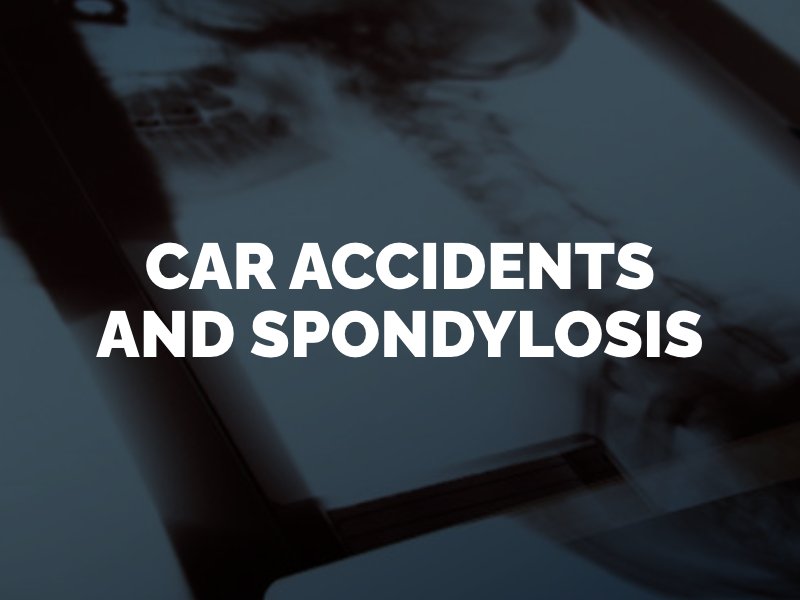Can a Car Accident Cause Spondylosis?
Spondylosis is a degenerative condition that affects the spinal cord. It can cause chronic pain for a victim, as it can force the vertebrae to slip out of place and press on surrounding nerves. While a car accident cannot cause spondylosis, it can exacerbate an existing injury or condition and result in new pain or other symptoms related to spondylosis in the spine.

What Is Spondylosis?
Spondylosis or spondylolisthesis is a back condition that impacts the spinal discs, or the jellylike cushions that rest between two vertebrae, and the joints between the bones of the spine. It is a degenerative condition, meaning it is a progressive and typically irreversible deterioration of the spinal discs. When the discs become worn out, they lose their softness and become hard and brittle. The spinal cord will have less cushion, resulting in pain, discomfort and immobility.
Spondylosis and other degenerative spinal cord conditions can make the spine more susceptible to injury in an accident. In a car accident, for example, the forces of the crash can aggravate or worsen a pre-existing case of spondylosis. Where the condition might not have caused the victim pain before, he or she may now notice severe pain or discomfort due to the collision. Any impact can cause severe harm and trigger new pain or spinal cord injuries for a victim with spondylosis.
Signs and Symptoms of Spondylosis
With spondylosis, the discs and shock absorbers of the spine are compromised and cannot perform efficiently. This can lead to pain and soreness in the back, neck or shoulders. The most common place to notice this pain is in the lower back or lumbar spine. After a car accident, victims with spondylosis often complain of pain in the L4 and L5 vertebrae. Los Angeles spinal cord injury attorneys have seen cervical spondylosis also to be common, often concentrated at C4, C5 and C6.
After any type of auto accident in Los Angeles, see a doctor for a complete physical evaluation. Tell your doctor about your spondylosis or degenerative disc disease, if you are aware that you have these conditions. The doctor may order an x-ray or MRI to see if one or more vertebrae are out of place. This can confirm your diagnosis and serve as evidence in a car accident injury claim. Request copies of your medical records to submit to a car insurance company.
Can You Seek Compensation for Spondylosis After a Car Accident?
Yes. Even though spondylosis is typically a pre-existing injury, a car accident victim can seek financial compensation for this condition and related pain or disability after the crash. There is a legal doctrine known as the Eggshell Skull Rule that states that a defendant in a personal injury case must take the plaintiff as he or she is at the time of an accident, even with pre-existing injuries or conditions.
If a plaintiff has a condition that makes him or her more susceptible to injury than the average person – including spondylosis – the defendant is still liable for the plaintiff’s injuries if he or she caused the car accident. The defendant’s insurance company must pay for the full extent of the plaintiff’s losses, regardless of whether spondylosis or another degenerative disc condition worsened the damage caused by the crash.
If you did not experience pain or other symptoms connected to spondylosis prior to your car accident, you may be entitled to compensation for your current physical state. The at-fault driver or party may be financially responsible for how the crash exacerbated your pre-existing back condition. In addition to compensation for any medical care that you need for your aggravated spondylosis, you may also receive payment for your current and future foreseeable pain, discomfort, disability, inconvenience, lost quality of life, loss of enjoyment of life, and other noneconomic damages.
To discuss the possibility of filing a Los Angeles personal injury claim for spondylosis after a car accident in Los Angeles, contact Rose, Klein & Marias, LLP for a free consultation.
